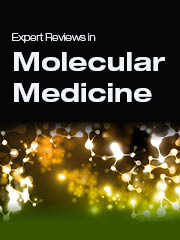Crossref Citations
This article has been cited by the following publications. This list is generated based on data provided by
Crossref.
KAWABATA, Atsufumi
2002.
Japanese Journal of Thrombosis and Hemostasis,
Vol. 13,
Issue. 6,
p.
467.
Nishikawa, Hiroyuki
and
Kawabata, Atsufumi
2003.
Modulation of gastric function by proteinase‐activated receptors.
Drug Development Research,
Vol. 60,
Issue. 1,
p.
9.
KAWABATA, Atsufumi
2003.
Physiological functions of protease-activated receptor-2..
Folia Pharmacologica Japonica,
Vol. 121,
Issue. 6,
p.
411.
Hirano, Katsuya
and
Kanaide, Hideo
2003.
Role of Protease-activated Receptors in the Vascular System.
Journal of Atherosclerosis and Thrombosis,
Vol. 10,
Issue. 4,
p.
211.
Kawao, Naoyuki
Ikeda, Hisao
Kitano, Tomoko
Kuroda, Ryotaro
Sekiguchi, Fumiko
Kataoka, Kazuo
Kamanaka, Yoshihisa
and
Kawabata, Atsufumi
2004.
Modulation of Capsaicin-Evoked Visceral Pain and Referred Hyperalgesia by Protease-Activated Receptors 1 and 2.
Journal of Pharmacological Sciences,
Vol. 94,
Issue. 3,
p.
277.
Kawabata, Atsufumi
Kubo, Satoko
Ishiki, Tsuyoshi
Kawao, Naoyuki
Sekiguchi, Fumiko
Kuroda, Ryotaro
Hollenberg, Morley D.
Kanke, Toru
and
Saito, Naohiro
2004.
Proteinase-Activated Receptor-2-Mediated Relaxation in Mouse Tracheal and Bronchial Smooth Muscle: Signal Transduction Mechanisms and Distinct Agonist Sensitivity.
The Journal of Pharmacology and Experimental Therapeutics,
Vol. 311,
Issue. 1,
p.
402.
Nishikawa, Hiroyuki
Kawai, Kenzo
Tanaka, Makoto
Ohtani, Hiroya
Tanaka, Shuichi
Kitagawa, Chizuko
Nishida, Minoru
Abe, Tomoyuki
Araki, Hiromasa
and
Kawabata, Atusufumi
2005.
Protease-Activated Receptor-2 (PAR-2)-Related Peptides Induce Tear Secretion in Rats: Involvement of PAR-2 and Non-PAR-2 Mechanisms.
The Journal of Pharmacology and Experimental Therapeutics,
Vol. 312,
Issue. 1,
p.
324.
Kawabata, Atsufumi
and
Kawao, Naoyuki
2005.
Physiology and Pathophysiology of Proteinase-Activated Receptors (PARs): PARs in the Respiratory System: Cellular Signaling and Physiological/Pathological Roles.
Journal of Pharmacological Sciences,
Vol. 97,
Issue. 1,
p.
20.
Kawabata, Atsufumi
Oono, Yuko
Yonezawa, Daiki
Hiramatsu, Kaori
Inoi, Naoki
Sekiguchi, Fumiko
Honjo, Masami
Hirofuchi, Michiko
Kanke, Toru
and
Ishiwata, Hiroyuki
2005.
2‐Furoyl‐LIGRL‐NH2, a potent agonist for proteinase‐activated receptor‐2, as a gastric mucosal cytoprotective agent in mice.
British Journal of Pharmacology,
Vol. 144,
Issue. 2,
p.
212.
Hirano, Katsuya
Yufu, Tatsuya
Hirano, Mayumi
Nishimura, Junji
and
Kanaide, Hideo
2005.
Physiology and Pathophysiology of Proteinase-Activated Receptors (PARs): Regulation of the Expression of PARs.
Journal of Pharmacological Sciences,
Vol. 97,
Issue. 1,
p.
31.
Kanke, Toru
Takizawa, Toshiaki
Kabeya, Mototsugu
and
Kawabata, Atsufumi
2005.
Physiology and Pathophysiology of Proteinase-Activated Receptors (PARs): PAR-2 as a Potential Therapeutic Target.
Journal of Pharmacological Sciences,
Vol. 97,
Issue. 1,
p.
38.
Kawabata, Atsufumi
Matsunami, Maho
Tsutsumi, Masahiro
Ishiki, Tsuyoshi
Fukushima, Osamu
Sekiguchi, Fumiko
Kawao, Naoyuki
Minami, Takeshi
Kanke, Toru
and
Saito, Naohiro
2006.
Suppression of pancreatitis‐related allodynia/hyperalgesia by proteinase‐activated receptor‐2 in mice.
British Journal of Pharmacology,
Vol. 148,
Issue. 1,
p.
54.
Yang, Yi-Lin
Serrano, Myrna G.
Sheoran, Abhineet S.
Manque, Patricio A.
Buck, Gregory A.
and
Widmer, Giovanni
2009.
Over-expression and localization of a host protein on the membrane of Cryptosporidium parvum infected epithelial cells.
Molecular and Biochemical Parasitology,
Vol. 168,
Issue. 1,
p.
95.
Lee, Sang Eun
Jeong, Se Kyoo
and
Lee, Seung Hun
2010.
Protease and Protease-Activated Receptor-2 Signaling in the Pathogenesis of Atopic Dermatitis.
Yonsei Medical Journal,
Vol. 51,
Issue. 6,
p.
808.
Moriyuki, Kazumi
Sekiguchi, Fumiko
Matsubara, Kaori
Nishikawa, Hiroyuki
and
Kawabata, Atsufumi
2010.
Curcumin Inhibits the Proteinase-Activated Receptor-2–Triggered Prostaglandin E2 Production by Suppressing Cyclooxygenase-2 Upregulation and Akt-Dependent Activation of Nuclear Factor-κB in Human Lung Epithelial Cells.
Journal of Pharmacological Sciences,
Vol. 114,
Issue. 2,
p.
225.
Gu, Qihai
and
Lee, Lu‐Yuan
2012.
Therapeutic Targets.
p.
37.
Maeda, Shingo
Maeda, Sadatoshi
Ohno, Koichi
Kaji, Noriyuki
Hori, Masatoshi
Fujino, Yasuhito
and
Tsujimoto, Hajime
2013.
Protease-activated receptor-2 induces proinflammatory cytokine and chemokine gene expression in canine keratinocytes.
Veterinary Immunology and Immunopathology,
Vol. 153,
Issue. 1-2,
p.
17.
Kim, Ji Young
Kim, Do Young
Son, Hyojung
Kim, Yoon Jee
and
Oh, Sang Ho
2014.
Protease-activated receptor-2 activates NQO-1 via Nrf2 stabilization in keratinocytes.
Journal of Dermatological Science,
Vol. 74,
Issue. 1,
p.
48.
Kim, Ji Young
Kim, Yoon Jee
Lim, Beom Jin
Sohn, Hyo Jung
Shin, Dongyun
and
Oh, Sang Ho
2014.
Increased Expression of Cathelicidin by Direct Activation of Protease-Activated Receptor 2: Possible Implications on the Pathogenesis of Rosacea.
Yonsei Medical Journal,
Vol. 55,
Issue. 6,
p.
1648.
McNulty, Amy L.
Leddy, Holly A.
Liedtke, Wolfgang
and
Guilak, Farshid
2015.
TRPV4 as a therapeutic target for joint diseases.
Naunyn-Schmiedeberg's Archives of Pharmacology,
Vol. 388,
Issue. 4,
p.
437.


